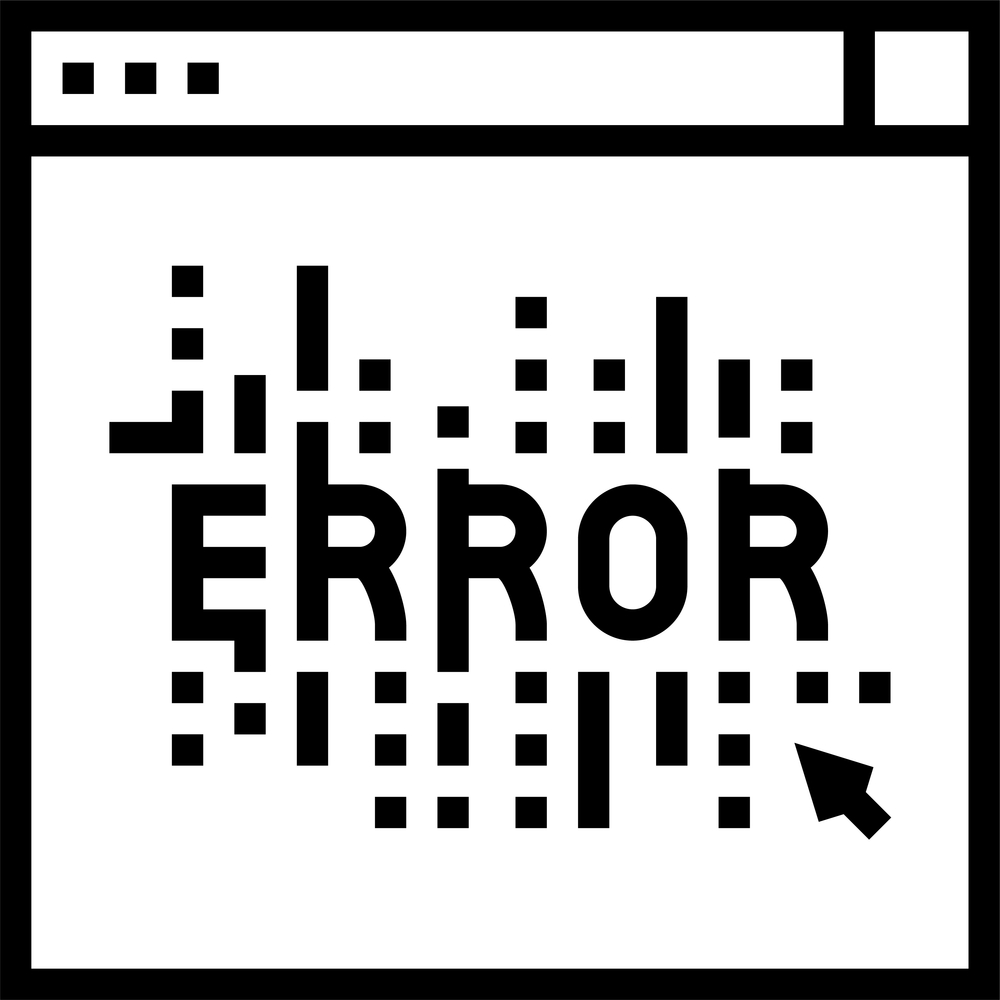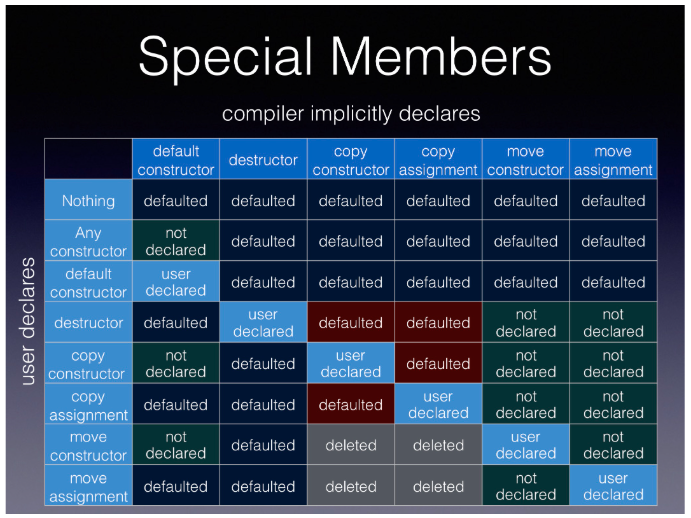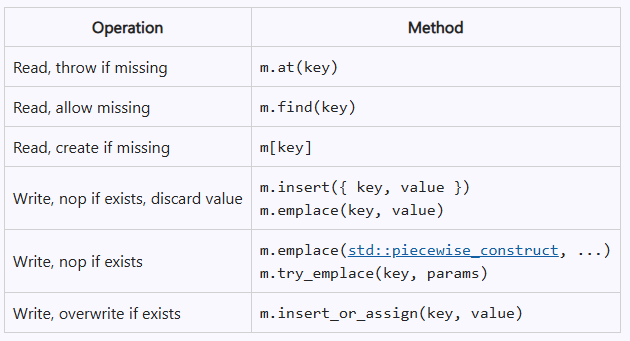Learning to read C++ Compiler Errors: Failing to Create a shared_ptr -- Raymond Chen
 The trick to understanding C++ compiler error messages is to focus on two things. First, look at the beginning of the error message, which tells you what went wrong at a very low level. Then skip over the intermediate errors that follow the chain of calls until you end up at the line of code that you wrote. That original line of code is the one that is leading the compiler to a bad place. After that, you sometimes get supplemental information that helps you understand the low-level error better.
The trick to understanding C++ compiler error messages is to focus on two things. First, look at the beginning of the error message, which tells you what went wrong at a very low level. Then skip over the intermediate errors that follow the chain of calls until you end up at the line of code that you wrote. That original line of code is the one that is leading the compiler to a bad place. After that, you sometimes get supplemental information that helps you understand the low-level error better.
Learning to read C++ Compiler Errors: Failing to Create a shared_ptr
by Raymond Chen
From the article:
Consider the following erroneous code:
#include <memory> #include <string> struct WidgetOptions { // imagine there is interesting stuff here }; struct Widget { Widget(WidgetOptions const* options); // imagine there is other interesting stuff here }; void oops() { WidgetOptions options; // The next line fails to compile std::shared_ptr<Widget> widget = std::make_shared<Widget>(options); }Here comes the error explosion.
// gcc In file included from bits/stl_tempbuf.h:61, from memory:66, from sample.cpp:1: bits/stl_construct.h: In instantiation of 'void std::_Construct(_Tp*, _Args&& ...) [with _Tp = Widget; _Args = {WidgetOptions&}]': bits/alloc_traits.h:657:19: required from 'static void std::allocator_traits<std::allocator<void> >::construct(allocator_type&, _Up*, _Args&& ...) [with _Up = Widget; _Args = {WidgetOptions&}; allocator_type = std::allocator<void>]' 657 | { std::_Construct(__p, std::forward<_Args>(__args)...); } | ~~~~~~~~~~~~~~~^~~~~~~~~~~~~~~~~~~~~~~~~~~~~~~~~~~~~ bits/shared_ptr_base.h:607:39: required from 'std::_Sp_counted_ptr_inplace<_Tp, _Alloc, _Lp>::_Sp_counted_ptr_inplace(_Alloc, _Args&& ...) [with _Args = {WidgetOptions&}; _Tp = Widget; _Alloc = std::allocator<void>; __gnu_cxx::_Lock_policy _Lp = __gnu_cxx::_S_atomic]' 607 | allocator_traits<_Alloc>::construct(__a, _M_ptr(), | ~~~~~~~~~~~~~~~~~~~~~~~~~~~~~~~~~~~^~~~~~~~~~~~~~~ 608 | std::forward<_Args>(__args)...); // might throw | ~~~~~~~~~~~~~~~~~~~~~~~~~~~~~~~ bits/shared_ptr_base.h:969:16: required from 'std::__shared_count<_Lp>::__shared_count(_Tp*&, std::_Sp_alloc_shared_tag<_Alloc>, _Args&& ...) [with _Tp = Widget; _Alloc = std::allocator<void>; _Args = {WidgetOptions&}; __gnu_cxx::_Lock_policy _Lp = __gnu_cxx::_S_atomic]' 969 | auto __pi = ::new (__mem) | ^~~~~~~~~~~~~ 970 | _Sp_cp_type(__a._M_a, std::forward<_Args>(__args)...); | ~~~~~~~~~~~~~~~~~~~~~~~~~~~~~~~~~~~~~~~~~~~~~~~~~~~~~ bits/shared_ptr_base.h:1713:14: required from 'std::__shared_ptr<_Tp, _Lp>::__shared_ptr(std::_Sp_alloc_shared_tag<_Tp>, _Args&& ...) [with _Alloc = std::allocator<void>; _Args = {WidgetOptions&}; _Tp = Widget; __gnu_cxx::_Lock_policy _Lp = __gnu_cxx::_S_atomic]' 1713 | : _M_ptr(), _M_refcount(_M_ptr, __tag, std::forward<_Args>(__args)...) | ^~~~~~~~~~~~~~~~~~~~~~~~~~~~~~~~~~~~~~~~~~~~~~~~~~~~~~~~~~ bits/shared_ptr.h:463:59: required from 'std::shared_ptr<_Tp>::shared_ptr(std::_Sp_alloc_shared_tag<_Tp>, _Args&& ...) [with _Alloc = std::allocator<void>; _Args = {WidgetOptions&}; _Tp = Widget]' 463 | : __shared_ptr<_Tp>(__tag, std::forward<_Args>(__args)...) | ^ bits/shared_ptr.h:1007:14: required from 'std::shared_ptr<typename std::enable_if<(! std::is_array<_Tp>::value), _Tp>::type> std::make_shared(_Args&& ...) [with _Tp = Widget; _Args = {WidgetOptions&}; typename enable_if<(! is_array<_Tp>::value), _Tp>::type = Widget]' 1007 | return shared_ptr<_Tp>(_Sp_alloc_shared_tag<_Alloc>{__a}, | ^~~~~~~~~~~~~~~~~~~~~~~~~~~~~~~~~~~~~~~~~~~~~~~~~~ 1008 | std::forward<_Args>(__args)...); | ~~~~~~~~~~~~~~~~~~~~~~~~~~~~~~~ sample.cpp:22:33: required from here 22 | std::make_shared<Widget>(options); | ~~~~~~~~~~~~~~~~~~~~~~~~^~~~~~~~~ bits/stl_construct.h:119:7: error: no matching function for call to 'Widget::Widget(WidgetOptions&)' 119 | ::new((void*)__p) _Tp(std::forward<_Args>(__args)...); | ^~~~~~~~~~~~~~~~~~~~~~~~~~~~~~~~~~~~~~~~~~~~~~~~~~~~~ sample.cpp:11:5: note: candidate: 'Widget::Widget(const WidgetOptions*)' 11 | Widget(WidgetOptions const* options); | ^~~~~~ sample.cpp:11:33: note: no known conversion for argument 1 from 'WidgetOptions' to 'const WidgetOptions*' 11 | Widget(WidgetOptions const* options); | ~~~~~~~~~~~~~~~~~~~~~^~~~~~~ sample.cpp:9:8: note: candidate: 'constexpr Widget::Widget(const Widget&)' 9 | struct Widget | ^~~~~~ sample.cpp:9:8: note: no known conversion for argument 1 from 'WidgetOptions' to 'const Widget&' sample.cpp:9:8: note: candidate: 'constexpr Widget::Widget(Widget&&)' sample.cpp:9:8: note: no known conversion for argument 1 from 'WidgetOptions' to 'Widget&&' Compiler returned: 1

 This article explores how C++20 concepts can replace CRTP when implementing static interfaces for a family of classes. By leveraging concepts, we achieve cleaner, more readable, and less error-prone code—provided you have access to C++20.
This article explores how C++20 concepts can replace CRTP when implementing static interfaces for a family of classes. By leveraging concepts, we achieve cleaner, more readable, and less error-prone code—provided you have access to C++20. Last time,
Last time,  Since its introduction,
Since its introduction,  We all know that every ‘,’ matters in this language, so I decided to talk directly about that character today. So, how much impact can be for such a small little character?
We all know that every ‘,’ matters in this language, so I decided to talk directly about that character today. So, how much impact can be for such a small little character? The topic of this post is to show different ways to ensure that a class is either non-moveable or non-copyable.
The topic of this post is to show different ways to ensure that a class is either non-moveable or non-copyable.